Short reign of Peter III. Lies and truth
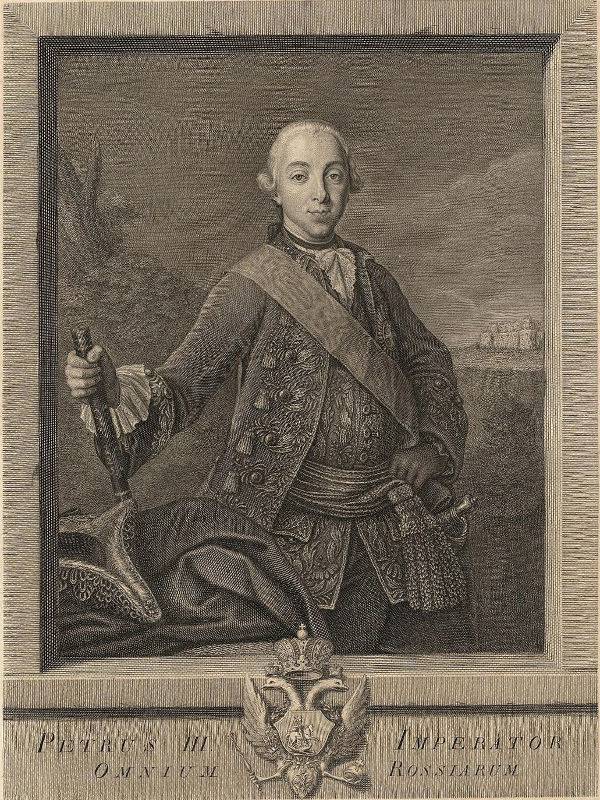
If you believe the false memoirs of his murderers, all 186 days after the death of Elizabeth, Peter was only involved in drinking with the Holstein people in Oranienbaum - they say that at last a man got to free and unlimited Russian vodka (just like Yeltsin in our 90). And in short and rare minutes of painful sobriety, he once again betrayed Russia to his beloved Friedrich (again, Yeltsin is remembered). These stories should be treated like nonsense that has nothing to do with reality.
Legislative activity of Peter III
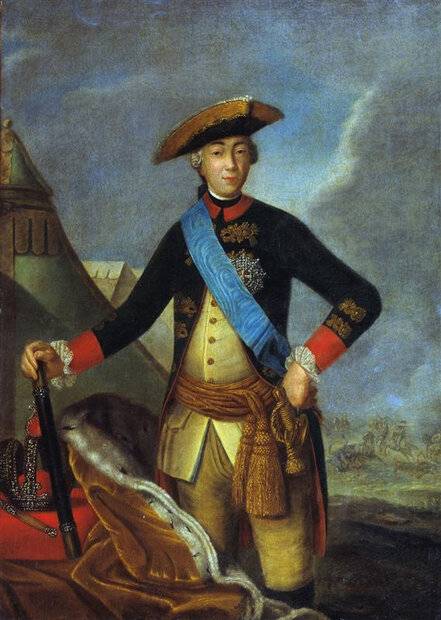
It is known that during the time spent by Peter III on the throne, he prepared and published 192 laws and decrees - more than 30 per month. In this connection, an interesting question arises: when did he still have time to get drunk? Considering that Catherine II, who worked tirelessly for the good of Russia, for the month on average signed only 12 decrees, and Peter I only 8.
But this is the quantity. And what about the quality of all these decrees? Maybe they spoke exclusively about military articles and the number of buttons on overcoats?
The most famous, of course, was the "Law on the Liberty of the Nobility" - for this decree, the Russian nobles were going to put a lifetime monument to Peter III in time, but did not have time. This law, which came to power, Catherine corrected in 1763, again making the service of the nobility mandatory, only in 1785, military service became optional.
Peter III also abolished the Secret Office (which probably greatly facilitated the position of the conspirators and contributed to their success). Catherine took into account this sad experience, reviving the terrible "Office" under the name "Secret Expedition."
Catherine also abolished other progressive laws of Peter III: on freedom of religion, on the prohibition of church supervision of the personal life of parishioners, on the transparency of legal proceedings and free travel abroad. Peter III ordered an end to the persecution of the Old Believers, but, imagining herself a "philosopher on the throne," the usurper after coming to power resumed them. Finally, Peter, for the first time in Russia, issued a decree on the “silver-free service” prohibiting officials from being awarded “peasant souls” and state land with only orders. Under Catherine II, as we recall, peasants for gifts to her accomplices and favorites soon ended, so that “not offending anyone” had to introduce serfdom in Little Russia (in 1783):
What have you done?
The steppe, the wide edge is cheerful,
Panama gave away. "
This song was heard in Ukraine at the beginning of the twentieth century.
A.S. Pushkin wrote about this:
A. K. Tolstoy also did not bypass this topic. In a mock "Stories of the Russian state from Gostomysl to Timashev "of all the acts of Catherine II, only the introduction of serfdom in Little Russia is mentioned:
Order will blossom, -
They wrote her courteously
Voltaire and Deiderot, -
Only the people need
To whom you are a mother
Rather give freedom
Rather give freedom. ”
"Messieurs," objected to them.
She, - vous me comblez "(you are too kind to me) -
And immediately attached
Ukrainians to the land. "
The decree of Peter III on restricting the personal dependence of peasants on landowners was canceled - instead, under Catherine II, for the first time in Russian history, they began to be sold separately from the land. It was then that serfdom turned into real slavery, and it was not the Crimean Tatars in the Cafe that sold the Russian people, but the Russian landowners like cattle in four all-Russian slave markets: in St. Petersburg, Moscow, Nizhny Novgorod, and Samara. And also - at many small local bazaars and newspaper advertisements. Sometimes a wife was separated from her husband, and a mother was separated from children.
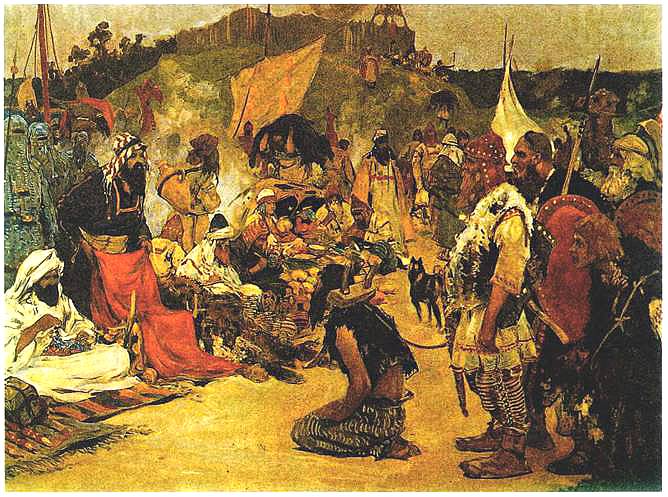
The decrees on non-obligatory military service and on non-obligatory observance of religious posts remained unfulfilled. However, Peter III managed to free part of the monastic serfs, giving them eternal use of arable land, for which they were supposed to contribute cash rent to the state treasury. In total, it was supposed to give freedom to 910.866 to male peasants: add women to them and realize the scale of monastery slavery and the grandeur of the reform. He deprived the slave clergy of the salary as "civil servants." Alas, many of these peasants freed by Peter, Catherine will soon give away to her lovers.
By other decrees, Peter ordered the founding of a state bank, to the accounts of which he contributed 5 million rubles from personal funds to ensure the issuance of the first bank notes in Russia, to replace damaged coins. The price of salt was also reduced, peasants were allowed to trade in cities without obtaining permission and paperwork (which immediately stopped numerous abuses and requisitions). In the army and on navy it was forbidden to punish soldiers and sailors with bats and “cats” (these are four-tailed lashes with knots at the ends).
Everyone knows that the death penalty was abolished under Elizabeth. But, you wondered how many people were beaten to death during the execution of "standard and ordinary" savage "punishments"?
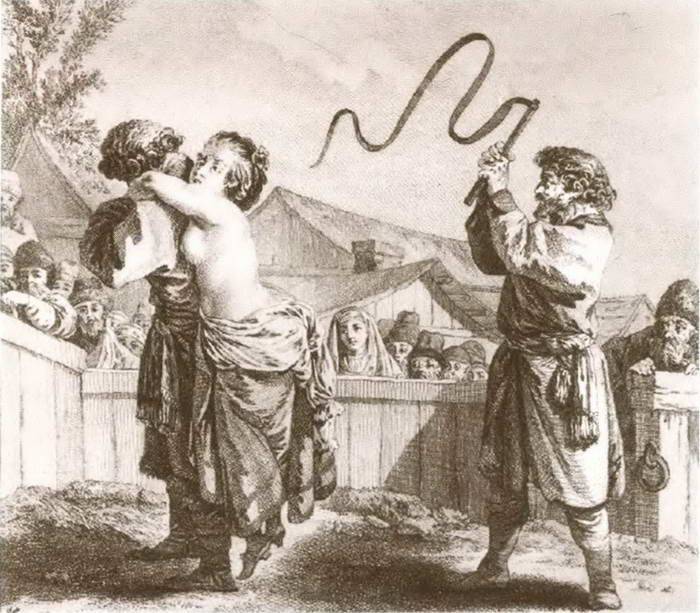
Here is the famous resolution of Nicholas I on the report on two persons sentenced to death:
(D. G. Bertram. History of the rod. T. I. M., 1992, p. 157.)
Do you think there are many chances for a person to survive after 12 of thousands of punches with gauntlets? This is a metal ramrod or a long and flexible thick rod made of twigs dipped in salt water. I answer: there was no chance even after the appointment of 6 of thousands of such attacks. Therefore, often in sentences indicated:
Probably, it’s better to immediately on the chopping block, is not it?
But back to the decrees of Peter III. For example, “for innocent patience of torture of courtyard people”, it was ordered that the landowner Zotova be tonsured in the monastery and her property confiscated to pay compensation to the victims.
By another decree of the emperor, Voronezh lieutenant V. Nesterov was forever exiled to Nerchinsk for bringing to death a yard man.
Peter III and John VI. Date of two emperors
Peter III showed great interest in a person who was quite dangerous for himself — John Antonovich, the victim and captive of Elizabeth. On 22 on March 1762 in Shlisselburg, a meeting of two emperors took place - Peter III (who appeared incognito, dressed in officer uniform) and John Antonovich. They both ascended the throne on absolutely legal grounds, and both will die a violent death, moreover, John will survive Peter, but can his miserable existence be called life?
Who did Peter see in Shlisselburg? A tall and strong young man, outwardly tidy, maintaining order in his cell. Somehow, contrary to strict orders, he learned to write, and knew about his origin. John possessed a good memory and even remembered the name of the officer who accompanied his family from Oranienburg to Kholmogory - Korf (N.A. Korf, now chief police officer of St. Petersburg, who accompanied Peter III to Shlisselburg and was nearby during this conversation. Member of the conspiracy against Peter III). But the captive’s mind was nevertheless obscured by a lengthy solitary confinement, because he declared: “Sovereign John has long been taken to heaven, but he wants to preserve the claims of the person whose name he bears” (from the report of the British ambassador). Or, in another version: "Ivan is no longer alive; he knows about this prince that if this prince was born again, he would not give up his rights" (from a letter from the Ambassador of Austria).
According to some reports, Peter had intentions to release John with the aim of determining for military service. He refused these plans after a meeting, remaining dissatisfied with the prisoner's answers. He said that, in case of returning to the throne, he would order Elizabeth to be executed (he did not know about her death), and the grand duchess, according to one version, would be sent out of the country, and according to another, he would also be executed. Having abandoned the intention to free the prisoner, Peter, however, on April 1 handed over gifts for him (some of his clothes and shoes), and decided, nevertheless, to ease his situation somewhat. He ordered the Shlisselburg fortress to be equipped with a more comfortable room for John Antonovich (it was not completed due to a coup d'etat followed by the assassination of the emperor). This order, by the way, led to rumors that new cameras were being prepared for Peter's wife, Catherine.
Date of John VI and Catherine II
The seized power Catherine also visited the unfortunate John, but her visit led to toughening the conditions of his detention. In addition, she ordered to kill the prisoner if someone tries to free him. The jailers conscientiously executed this order in 1764.
Thus, Catherine II usurped the throne of Russia went down in history as the culprit of the death of two absolutely legitimate Russian emperors.
Peace Treaty and Union with Prussia
Now consider the worst "crime" of Peter III in the eyes of the patriots - the conclusion of peace with Frederick II and the abandonment of East Prussia. In fact, Prussia lost, having received nothing in return, it was Catherine II. Moreover, the hasty and unreasonable conclusion of the “Western Group of Forces” after the emperor’s assassination in 1762 resembles a strange “flight” of the Russian army from the territory of the former GDR. Let us explain the situation: Russia did not have any rights to the Prussian kingdom, and this conquest would never have been recognized by other monarchs of Europe. Remember what difficulties Russia has always experienced in trying to leave at least something of the lands of defeated Islamic Turkey. Even if it was "Wild Field" - the land of the future New Russia, vacant due to the constant raids of the Crimean Tatars, on which serfs from the central Russian provinces were brought, and also Bulgarians, Greeks, Serbs, Armenians fleeing from Ottoman oppression. From scratch, it was necessary to build not only villages and landowners' estates, but also big cities - Odessa, Kherson, Nikolaev, Mariupol, Ekaterinoslav (Dnepropetrovsk), Krivoy Rog, Aleksandrovsk (Zaporozhye) ... And here is a well-developed territory on which they live not the “Mohammedans,” but the Lutheran Germans, and this is not the Ottoman province, but the European kingdom. These lands were separated from Russia by the traditionally hostile Polish-Lithuanian Commonwealth and the Duchy of Courland, whose status was not yet finally determined. The land route to East Prussia could be blocked at any minute, the supply by sea was problematic and depended on the position of Britain (first of all) and Sweden. To hold this territory there was not the slightest chance and no opportunity. But Russia had absolutely legal, uncontested, rights to Holstein and Stormarn, as well as to Schleswig and Ditmarshen (which were temporarily captured by Denmark). The duke of these lands was the new Russian emperor - Peter III. Thousands of young Holstein people came to Russia to serve their duke, even when he was Grand Duke. At the same time, East Prussia was a rather poor and backward agrarian country, the real backyards of Europe, Holstein and Schleswig - much richer principalities, and even with a unique geographical position that allows you to control the North and Baltic Seas. Look at the map:
This was no longer the Petersburg “window to Europe”, but the “elite real estate” in the then “European Union” with a permanent “residence permit” - territories from which it was possible to freely obtain the necessary specialists and the technologies that were absent in Russia. But we do know that the Europeans have always reacted (and relate) very negatively to the transfer of advanced technologies to "barbarian" Russia. We have already talked about the strategic position of these lands; powerful Russian military bases on their territory have changed a lot in the alignment of forces and the further course of European history. Peter perfectly understood all this, and therefore, according to the agreement he drew up, Petersburg returned East Prussia to Frederick II, but only on condition that Russia returned Schleswig and Dietmarschen, for the conquest of which Frederick pledged to provide an army of 20 thousand people to help Russia: 15 thousand foot soldiers and 5 thousand cavalry. Negotiations with Denmark were scheduled for July 1762. If they were unsuccessful, Russia and Prussia began military operations against the Danes and no one doubted their success. And even after that, Peter retained the right, at his discretion, to stop the withdrawal of Russian troops from Prussia "in view of the ongoing unrest in Europe." That is, the "Western Group of Forces" could remain in Prussia for many more years and maybe decades, guaranteeing the "obedience" of Frederick II and his "complaisance." While Peter III was alive, the Russian troops still controlled Prussia. Moreover, Koenigsberg was approached by the Russian squadron from Revel, which strengthened them (Kronstadt was ordered to be ready for the campaign). Stationary weapons and food depots. In addition, Frederick II pledged to support candidates convenient for Russia to the thrones of the Commonwealth and as yet independent Courland. Now you understand the lines of the German treatise quoted in the first article - Ryzhov V.A. Peter III. Too good for his age?:
But the Third was the best.
With him, Russia was great,
The envy of Europe subdued. "
But Catherine’s position was extremely precarious, and on the table near Frederick II there were letters compromising her, with the obligation to “be grateful.” And therefore, she did not dare to demand that the king fulfill his part of the obligations, while continuing to fulfill the obligations of the Russian side - in exchange for the recognition of her rights to the Russian throne. By order of Catherine II, the Russian army, without any conditions, was withdrawn from Prussia. This was accompanied by rampant patriotic chatter, the Prussian king was even called in the manifesto a "monster", to which the pragmatic Frederick paid no attention: at least call a "pot", just do what is required of you. And two years later, Catherine had openly concluded an alliance agreement with Prussia - not as beneficial as Peter III, but, in general terms, very similar. Such was the inglorious finale of Russia's participation in the Seven Years War absolutely unnecessary to her.
But what about Holstein and Schleswig? Schleswig was never recaptured from Denmark, but in Holstein the power of the son of Peter III was not disputed. When Pavel grew a little, thousands of his German subjects voluntarily came to his service, despite the terrible and sad fate of their predecessors from the garrison of Petershtadt (this will be discussed in detail in the next article). But in 1767, Catherine forced Paul to abandon Holstein and Stormarn, which belonged to him by right - in exchange for the counties of Oldenburg and Delmenhorst, located in northwestern Germany. This unequal and extremely unprofitable for Paul exchange of territories took place in 1773 - after he came of age. Catherine deliberately deprived the unloved son of loyal and loving subjects. In Kiel, this decision was taken very painfully, there even began to appear prophecies about the return of Paul’s father, Peter (in more detail in the following articles, which will also tell about the "posthumous adventures of the murdered Russian emperor). And Catherine Oldenburg and Delmenhorst (again, from named after Paul) already in 4 of the year - in 1777, she “gifted” the former prince-bishop Lübeck Frederick Augustus in hereditary sovereign possession, incompetently losing all European possessions of her husband and son, and after all this she called herself “Great”.
Russia has lost such an emperor as a result of a coup d'etat organized by Catherine. And what kind of "mother-empress" did our unfortunate country acquire?
"The Age of Golden Catherine"
Nice and a little bit prodigal
Voltaire was the first friend
She wrote the order, she burned the fleets,
And she died boarding a ship. "
A. S. Pushkin.
Catherine II did not learn to speak Russian correctly - many memoirists report on her distorting even the simplest words, a lot of "rudely Russified French expressions", an accent that she could not get rid of. In German, Catherine, by the way, also spoke and wrote, by her own admission, "badly." The Empress knew French better than the other two, but, according to the recollections of educated contemporaries, speaking in it, she used a large number of Italian and German words, and some even reported on Catherine’s “tabloid slang”. This is not surprising, since parents did not have high expectations for the girl, and, as she said, as if apologizing already in St. Petersburg, Catherine herself:
She also remembered her mentor, Mademoiselle Kardel,
According to K. Valiszewski, the main merit of Mademoiselle Kardel was that she saved the future empress "from the slap in the face, squandered by her mother for every trivial matter, obeying not the mind, but the mood." And also - "from the spirit of intrigue, lies, low instincts, petty ambition, reflecting the whole soul of several generations of German petty princes, inherent in the wife of Christian Augustus."
The former state lady of Catherine - Baroness Printen, told everyone that
It is not surprising that, in the story of Catherine about the first meeting with Peter (then Karl Peter Ulrich), we hear outright envy:
All this does not at all speak about the natural stupidity of Catherine. Awareness of their shortcomings, as you know, is the first step in solving the problem, and her constant half-joking statements about lack of education were supposed to "disarm" the interlocutors and make them condescending to a girl from the German backwoods. In Russia, Catherine read a lot, trying to compensate for the shortcomings of her education, and achieved certain successes.
Worse was the other. Corresponding to the great French philosophers, Catherine argued that
And she said that "it’s easier to rule a drunk people."
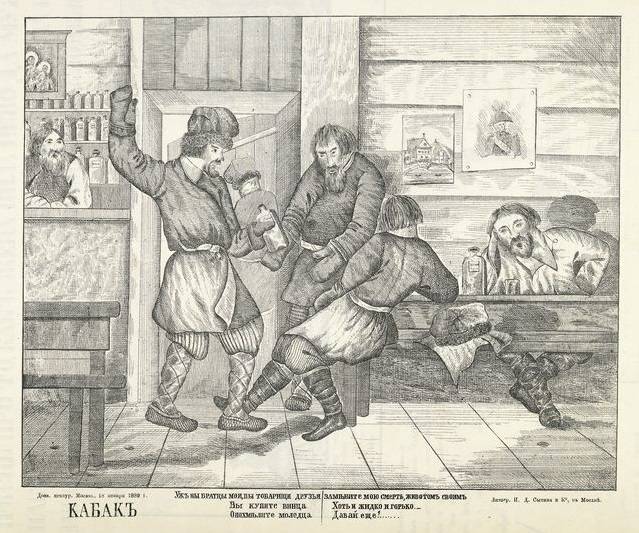
Mark Aldanov wrote that Catherine:
и
And this is an absolutely fair opinion. It is known that the empress herself was rather modest in food preferences: they say that she loved boiled beef with light-salted cucumbers, apples, her favorite drink is currant juice. However, in order to please the courtiers, the palace kitchen spent 90 rubles a day preparing various dishes. For comparison: the annual salary of the drummer of the police office was 4 rubles 56 kopecks, the cab driver of the office of the General Army Staff - 6 rubles, the linen factory worker - 9 rubles, the barber - 18 rubles, the army sergeant - 45 rubles, the painter of the imperial X factory of China.
However, 90 rubles a day - it was still "divine". Yekaterina's favorite Grigory Potemkin spent 800 rubles a day on the “table” - more than the doctor (249,96 rubles) and even the official 6 rank of the Table of Ranks — the college adviser (750 rubles) earned.
The empress was also indulgent with high-ranking embezzlers. To the president of the military college, applying for a poor officer, Catherine II answered:
(A. Kirpichnikov, Bribe and Corruption in Russia. M., 1997, p. 38-40.)
Pavel, who came to power, discovered that the 1541 fictitious officer was listed in the horse guard alone. And in the Preobrazhensky regiment (in which only nobles served) on 3500 privates there were 6000 non-commissioned officers, while only 100 of them were in service. And here we are talking about some mythical "second lieutenant Kizha".
Even “sweeter” was the life of Catherine’s favorites, the last of which - Platon Zubov, immediately held 36 government posts, for each of which he received a good “salary”. Here are some of them: General-Fieldmaster, General Director of all the fortifications of the empire, Commander of the Black Sea Fleet, Ascension Light Cavalry and the Black Sea Cossack Army, Adjutant General of Her Imperial Majesty, Chef of the Cavalier Guard Corps, Governor General Catherine of Trinity, Voznes Military College. His merits in bed, apparently, were so great that he was a holder of the orders of the Holy Apostle Andrew, St. Alexander Nevsky, the Holy Equal-to-the-Apostles Prince Vladimir I degree, the Royal Prussian orders of the Black and Red Eagles, the Polish orders of the White Eagle and St. Stanislav, the Grand Duke of Holstein St. Anne.
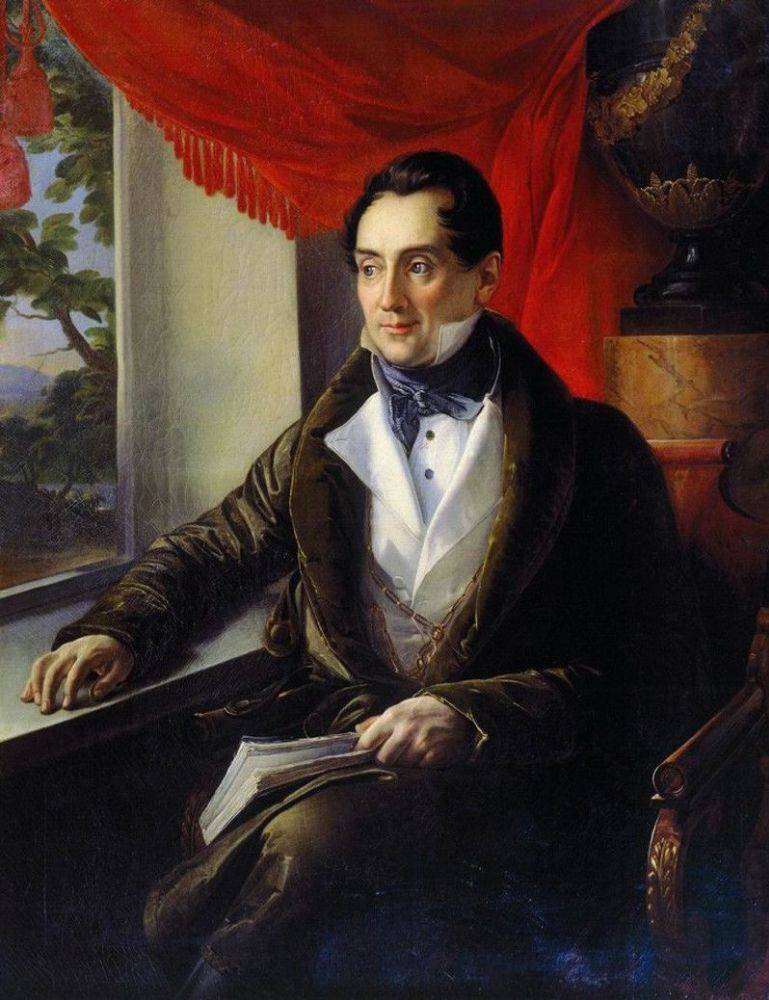
But the official "salary" is a mere trifle compared to the "gifts". For 6 years of “chance” Plato Zubov received more from Catherine II than Grigory Potemkin for 20 years, without spending (as contemporaries claim) “not a single ruble for the needs of society”. Closer to old age, his stinginess has already taken absolutely disgusting features, suggest that it was he who became the prototype of the "Mean Knight" in one of Alexander Pushkin's Little Tragedies.
The English envoy James Harris (who was ambassador to Russia from 1778 to 1783) in one of his reports told London about Catherine’s alleged expenditures for the maintenance of her favorites (modern scholars consider the data provided by Harris to be quite reliable). According to Harris, the Orlov family received from 1762 to 1783 years from 40 to 50 of thousands of “souls” of serfs (recall that only the “souls” of male peasants were taken into account, add more women) and, in total, 17 million rubles in cash and palaces, jewelry, dishes.
A. S. Vasilchikov for less than two years - 100 thousand rubles in silver, 50 thousand rubles in gold "trinkets", a fully furnished house worth 100 thousand rubles, an annual pension of 20 thousand rubles and 7 thousand souls of peasants.
G. A. Potemkin in the first two years of the “case” received 37 thousand peasants and about 9 million rubles.
On our behalf, we add that Potemkin received gifts from Catherine in the amount of about 50 million rubles, but this was not enough - after his death it turned out that he owed 2 million 600 thousand rubles to creditors, most of these debts were paid from the state treasury.
Let's go back to the Harris report:
For a year and a half, P.V. Zavadovsky received 6 thousand “souls” of peasants in Little Russia, 2 thousand in Poland, 1 800 in Russian provinces, 80 thousand rubles in jewelry, 150 thousand rubles in cash, a service worth 30 thousand rubles and a pension in 10 thousand rubles.
S. G. Zorich in one year of his “service” in the Empress’s bedroom received estates in Poland and Livonia, the command of the Order of Malta in Poland, 500 thousand rubles in cash and 200 thousand rubles with jewels.
I.N. Korsakov for sixteen months - a total of 370 thousand rubles and 4 thousand peasants in Poland.
Favorites and close empresses, wealthy landowner slave owners and their sons - officers of the guard regiments, could indeed call the "age of Catherine" "Golden", but how did the people live under this empress? Here is what Boris Mironov writes in the article “When did you live well in Russia?” (Homeland. No. 4. M., 2008, p. 19):
That is, Catherine II, with her voracious and insatiable favorites in the ruin of the people of Russia, surpassed even Peter I, about whom V. Klyuchevsky said that he "ravaged the fatherland worse than any enemy."
One of the indicators of the impoverishment of the peasants during the reign of Elizabeth Petrovna and, especially, Catherine II, was a decrease in the average height of Russian men by 3,5. Therefore, in 1780-1790. when recruiting, I had to lower growth qualifications - in order to recruit at least someone in the army.
The English Ambassador Harris already mentioned by us wrote in 1778:
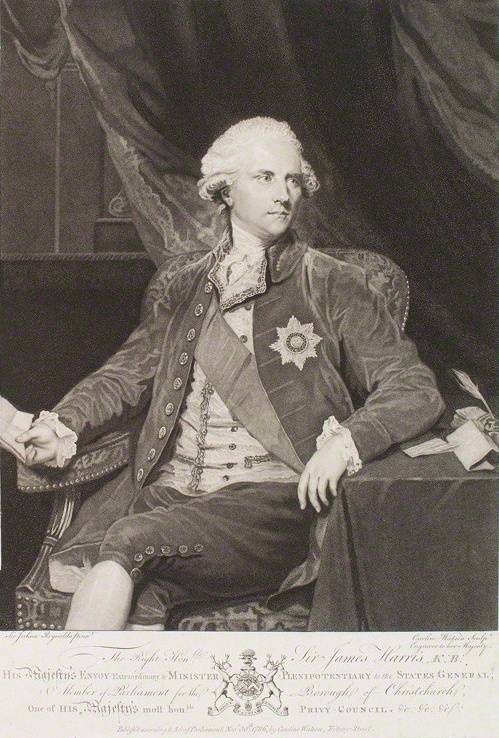
K. Valishevsky noted that "Catherine has reached perfection in the art of managing the modern press" and indicates that there was no shortage of people who wanted to sell their pen profitably:
Catherine’s sneakiness was so high that when
When
(K. Valishevsky, "Catherine II and the Opinion of Europe".)
Jean-Paul Marat, who, unlike Voltaire, Diderot, Rousseau and other lesser-known philosophers and writers, did not receive handouts from Catherine, wrote about Semiramida Severa:
A. S. Pushkin, too, was not deceived by the false gold of the "age of Catherine." Here is what is said about her in his Notes on Russian History of the 18th Century:
And this is the opinion of Alexander Herzen:
Here Herzen is in solidarity with Frederick II, who said that Catherine’s role in the conspiracy was minimal: the truly “serious” people used her as a battering ram against the uncomfortable legal emperor. It was assumed that she would take the place of regency with her son and would live for her own pleasure, without interfering in anything. It sounds funny, but even the 19-year-old Ekaterina Malaya - Dashkova, then considered herself a very important political figure and insisted on the regency of Ekaterina the Great. But Catherine II circled everyone around her finger: relying on Orlov-controlled “Janissaries,” she declared herself Empress. Dashkova, unlike many others (the same N. Panin), did not orient in time, for which she paid when Ekaterina "entered into force" and confidently felt herself on the throne. In 1764, under the pretext of observing mourning for her deceased husband, the empress sent Dashkova to Moscow, and in 1769, “to raise children” abroad. In 1783, it seemed, there was a rapprochement of old friends: Catherine II allowed Dashkova to return to Russia and appointed director of the Academy of Sciences, but already in 1794 she was dismissed, and Paul I was sent to a village near Novgorod.
But back to Catherine II and her Golden Age.
In her work "Catherine II, her origin, intimate life and politics", published in 1903, A.V. Stepanov (who, by the way, talking about Peter III, repeats all the "jokes" of his predecessors and calls the emperor a "semi-idiot") wrote:
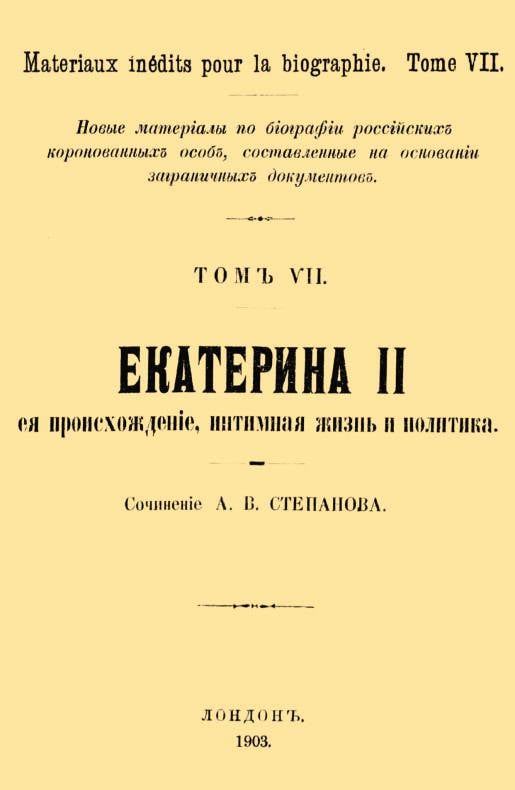
I.L. Barskov, student V.O. Klyuchevsky and teacher G.V. Vernadsky, one of the few who was allowed to analyze the manuscripts of the palace archive, editor and commentator of the 12-volume academic publication of the writings of Catherine II, also speaks extremely critically of her:
Oddly enough, many Soviet and modern Russian historians turned out to be more condescending to Catherine II than the researchers of tsarist Russia. This is a manifestation of the notorious "Stockholm Syndrome": in our country, the descendants of serfs often identify themselves with the oppressors of their ancestors. At that time, they represented themselves, at least, as lieutenants of the metropolitan guards regiments (or rather, colonels at once) or young countesses dancing a mazurka at the imperial balls with cinematic guards. Even V. Pikul in the novel "The Feather and the Sword" deceives us:
The same lieutenant, only the army, probably. No, Valentin Savich, the vast majority of modern Russians at that time would bend their backs on corvee in the estates of these lieutenants and cavalry guards near Smolensk or Tula. Or hunched over at the iron foundries of the Demidovs or linen factories of the relatives of the wife of Pushkin - the Goncharovs. Some - the angry and capricious mistress heels scratched, as on this engraving:
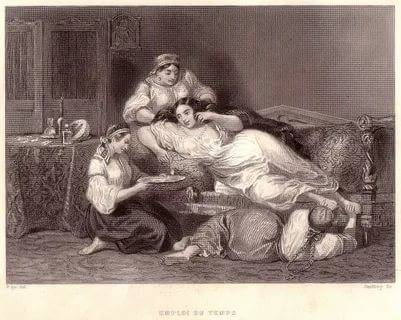
And if someone served, then he was an ordinary, and the whole village would cry on the wires over it - as if dead, knowing that his life would be a little better than hard labor. They will put the poor fellow in the form of a cross in the palm of his hand, and give them to the regimental non-commissioned officers, "training" the soldiers on the principle: "Ten recruits, but learn one."
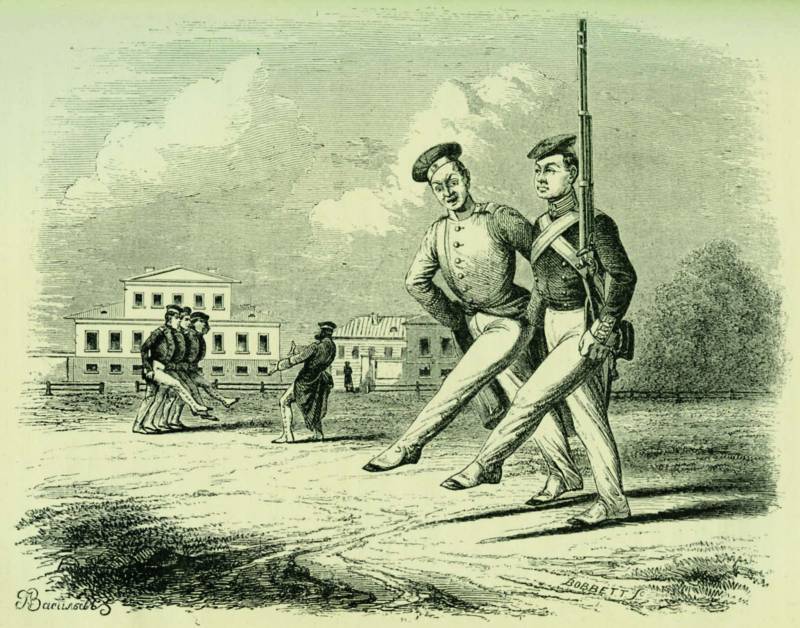
And then - on a trip to the Turks or Swedes, and during this war the probability of dying from typhoid or dysentery will be several times higher than from a Turkish saber or a Swedish bullet. Here are the data that historians have at their disposal for the army of Nikolaev time: from 1825 to 1850. the Russian army consisted of 2 600 497 soldiers. 300 233 people died in the battles, died from diseases - 1 062 839.
(Bershtein A. Empire of facades. // History. No. 4. M., 2005, p. 17.)
There is no reason to think that under Catherine II it was different.
And the situation is not better for the sailors - it is not for nothing that the galleys in the Russian Navy officially called "penal servitude" (this is the literal translation of the Italian word galera into Russian).
Among modern Russians there are no direct and legal descendants of princes and counts, nothing can be done.
Recognizing the obvious things - the low moral qualities of Catherine II, the double usurpation of power (having no rights to the Russian throne, took the crown from her husband and did not pass it to her son), the murder of two legal emperors, the conversion of serfdom into classical slavery and the stalling of the country into a real civil war ("Pugachevschina"), now they often talk about it as a tongue twister. The emphasis is on the victories of Russia in the wars with Turkey, the annexation of Crimea, the development of the lands of New Russia. However, Russia was experiencing at that time the heroic phase of its ethnogenesis - the stage of recovery. P.A. Rumyantsev, A.V. Suvorov, M.F. Kamensky, F.F. Ushakov, Russian soldiers and sailors would have won under any emperor. And the vector of Russia's centuries-old natural interests pushed it precisely to the Black Sea - in order to solve the problem of the aspen nest of the Crimean Khanate once and for all, to master the empty chernozem lands, to get free access to the Mediterranean Sea.
However, how many people, both in Russia and around the world, read the works of serious historians? The main apologist for Catherine II in our country was V.S. Pikul. Prior to the publication of his famous novel “Favorite,” this empress was known to the vast majority of the population of our country mainly by scandalous “jokes” (an anecdote in its original meaning is a short story about an interesting case, the literal meaning of the word is “unpublished”). The most indecent (and popular) of them is the bike, which became widespread at the French royal court after the death of Catherine, from serious researchers it is mentioned by the Polish historian K. Valiszewski, as a result of which there was even a version that he was its author. British historical actress Helen Mirren, who played the title role in the series Catherine the Great, had in mind this historical legend when she said in an interview with the Sun newspaper:
Due to the widespread occurrence of this kind of "jokes" in the imperial House of Romanov, they did not like talking about this empress, the theme of Catherine II was taboo in their circle, any mention of it in the presence of Nicholas I, Alexander II or Alexander III was considered a terrible "bad manners."
But Valentin Pikul did the almost impossible - he completely rehabilitated not only Catherine II, but even some of her favorites.
But enough for now about Catherine. In the following articles we will talk about the conspiracy against Peter III, and then about the circumstances of the murder of this emperor and his "posthumous adventures."
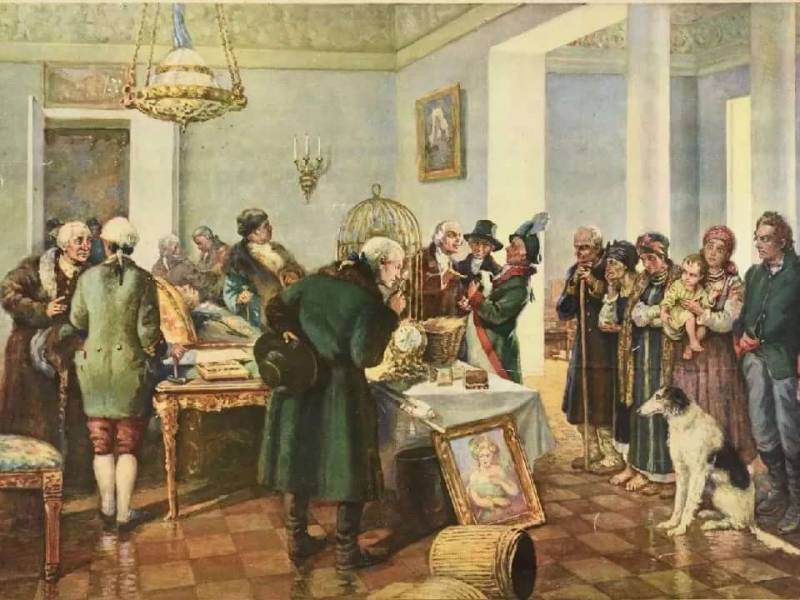
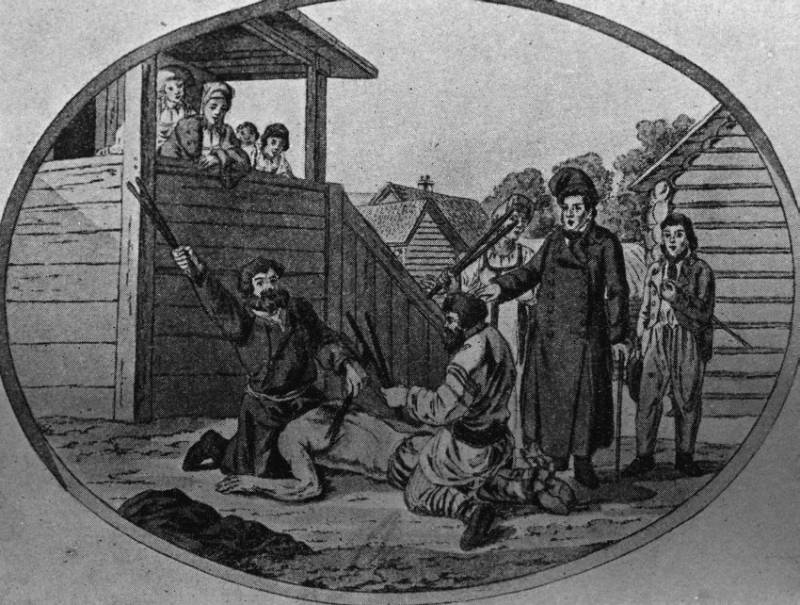
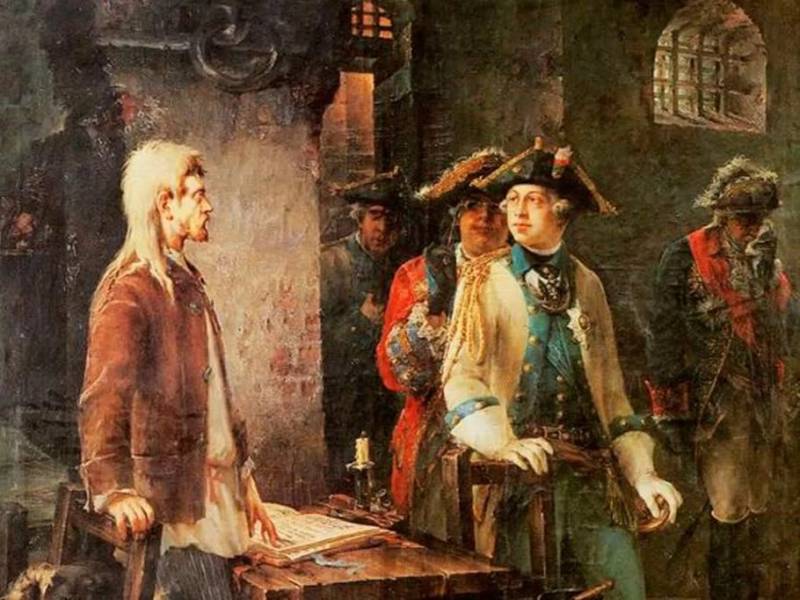
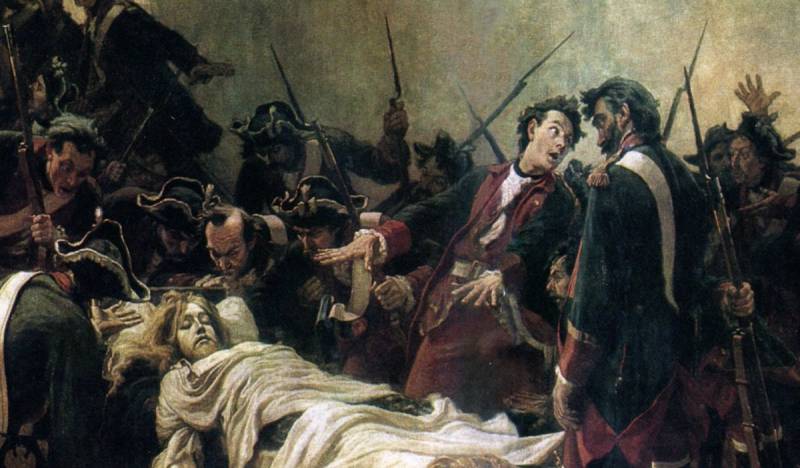
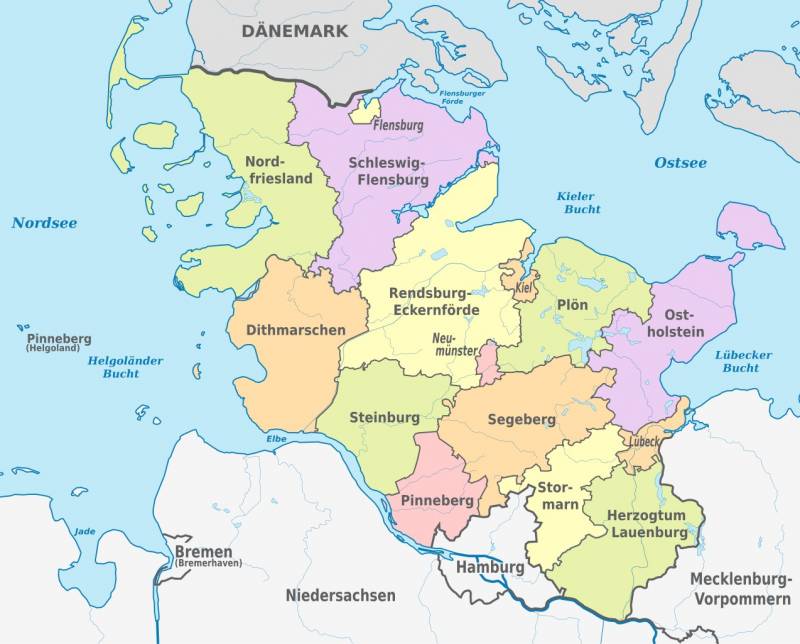
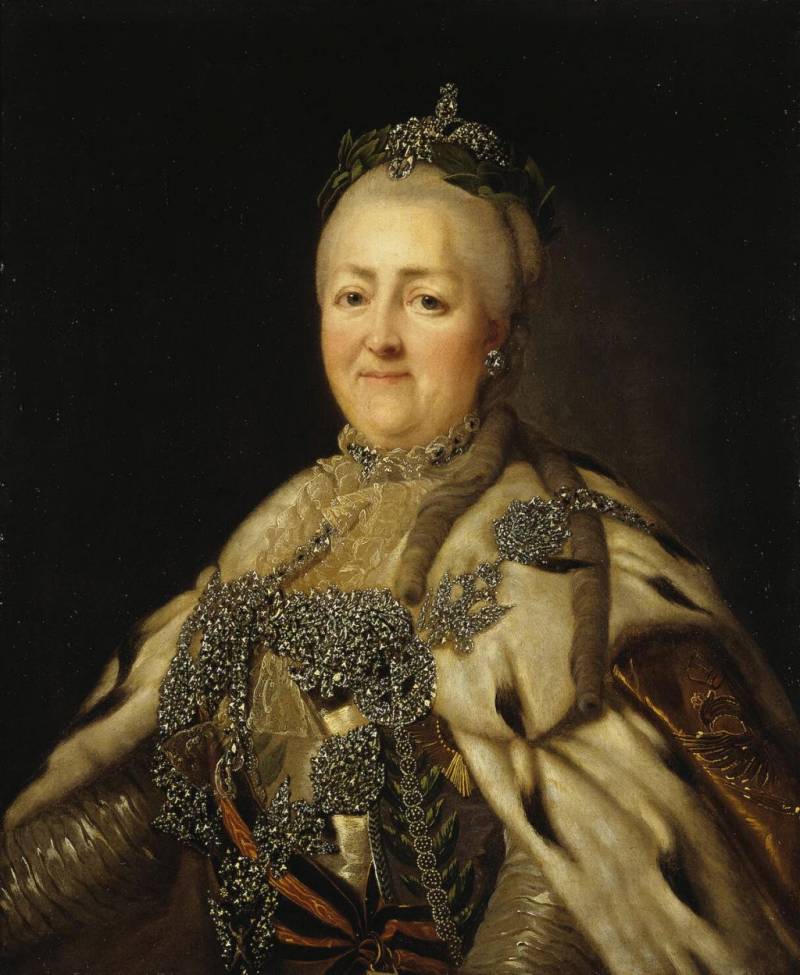
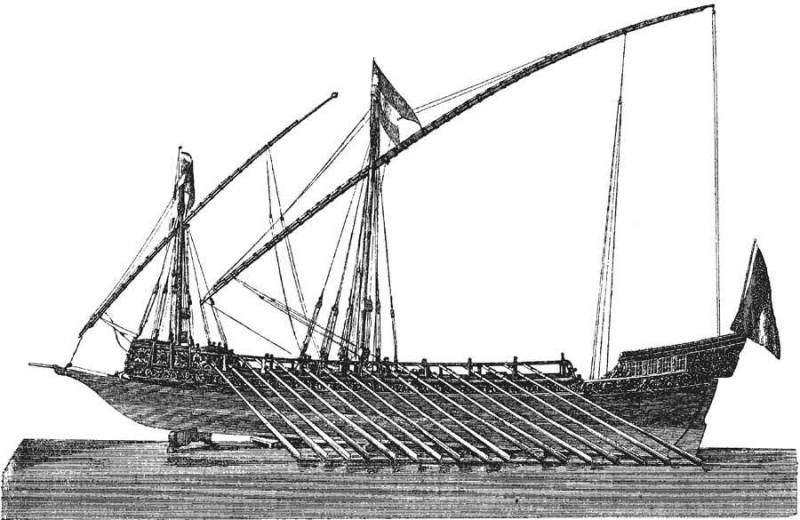

Information